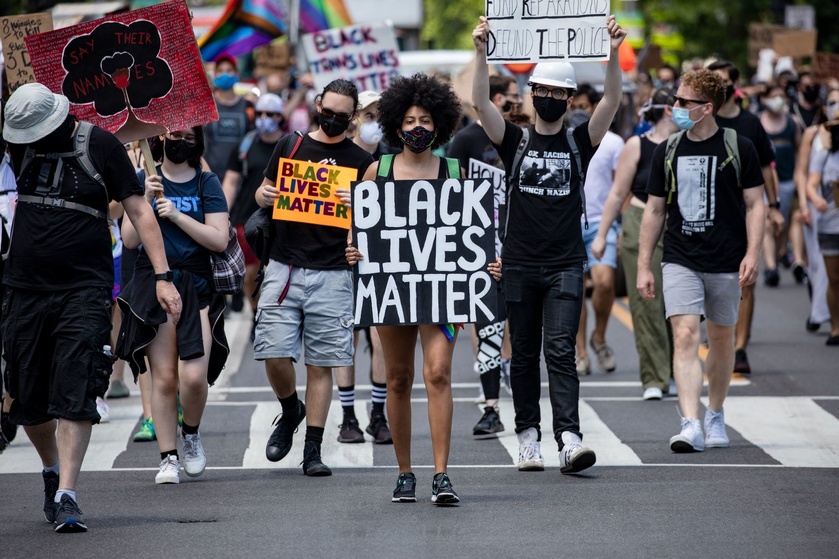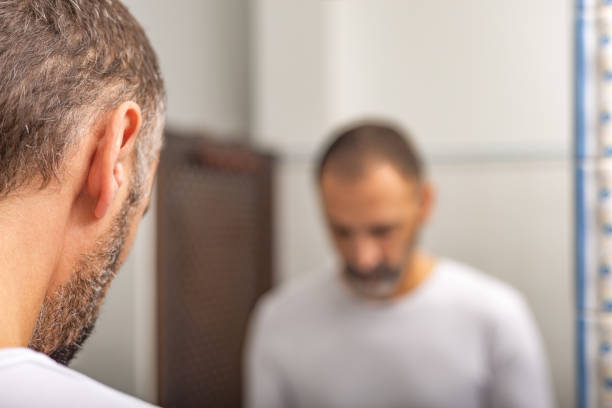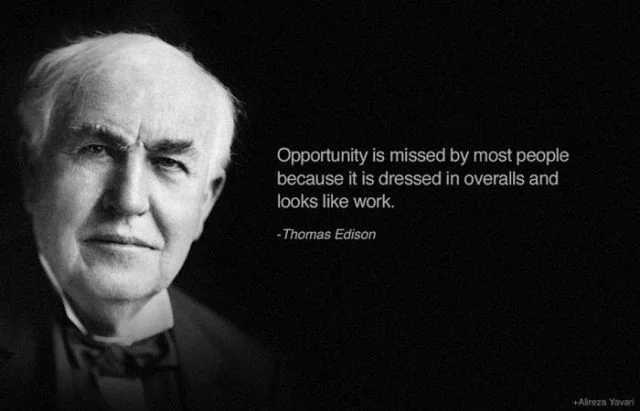Sorting through all the political and cultural noise of our time can be incredibly challenging for a young Christian. I have struggled with many issues throughout my life, but what I’ve found is that the more sincerely I search for the truth in Christ, the more illuminated the other areas of life become. After all, Jesus is the Light and Source of all truth.
The first part of one of my favorite quotes is, “If you are young and conservative, you don’t have a heart.” Like most rebellious, struggling teenagers, I found myself drawn to the social justice movements of the political left. I grew up attending Catholic schools in the city of Harrisburg, Pennsylvania, which developed within me a deep sense of compassion for the poor and a strong desire for social change.
I was raised by my black father and white mother in a very diverse suburb of the city. I often say that I was biracial before it was cool to be biracial, that is, before the popularization of biracial babies on Instagram and the widespread acceptance of interracial marriages. Today, we see interracial couples almost over-represented in pop culture, but back then they were frowned upon. And the world, along with some of their family and friends, let my parents know that.
I appreciate the cultural diversity that I was exposed to as a child but found it challenging to navigate as I was growing up. I always felt too “white” for the black kids and too “black” for the white kids.
Black kids would pick on me for the way I spoke, the way I dressed, and some of the music and shows I liked. To be fair, I did go to my first concert when I was 6 years old and does anybody want to guess what it was? Backstreet Boys. Yes, I went to a Backstreet Boys concert and my affinity for 90’s boy bands still wasn’t enough for my white peers. White kids would make fun of me for my skin color. And because of this, I felt like an outcast for many years.
I could never fully understand why people were so focused on racial differences. I eventually came to realize that I would eventually be forced by the world to pick a side.
So I chose what seemed most natural at the time, I leaned into the black half of me and didn’t look back.
To my developing mind, being more black meant listening exclusively to rap music, living out the lifestyle that it encouraged, and, of course, sympathizing with the cause of racial justice. I began acting out more and more in school, constantly blaming all the natural repercussions on racial inequality. I attended my second concert, any guesses who it was? It was 50 Cent, a much different experience from the Backstreet Boys just four years earlier.
Fully embracing the rap culture, I threw nearly all Catholic morality out of the window, despite having converted to the faith at 13. By 15, I was having sex, rolling blunts, ripping way too many shots of cheap vodka, and convincing my friends to do the same.
Another factor of this lifestyle was that I began actively searching for racism all around me and, believe it or not, I always found it whenever and wherever I looked.
It didn’t matter that I was carrying drugs through school, constantly disrupting class, and cheating more often than not on my homework and exams. All that mattered, to me, was that I was black and mistreated because of it. In my mind, that was all that mattered to my teachers as well.
I was so racially focused that it became annoying to a number of my white classmates and teachers. But I hadn’t created the inequalities, I was simply pointing them out, which I knew was supposed to be uncomfortable to white people.
It’s amazing how small moments can make a big difference in your life. I can still vividly remember sitting in one of my many detentions during my sophomore year of high school. I sat in the classroom, refusing to do any of my homework despite having nothing else to do. Seeing my refusal to be a productive and obstinate disposition, my religion teacher, Mr. DiMarco, came over to talk with me.
I remember sitting in the front row and him leaning back on his desk as we spoke. I don’t remember exactly what he said, but I do remember the message. He told me that I didn’t have to behave this way, teachers weren’t out to get me, and that I could actually be a quite successful student if I applied myself to my work rather than being a distraction to others.
Being as mild-tempered as he was, I know he wasn’t aggressive in telling me this. He didn’t yell. He didn’t try to fight back on every point I made. He simply shared this truth with me. While I rejected it wholeheartedly in that moment, it planted a seed inside my heart and soul – a seed of hope and possibility.
I began to believe that change was possible for me. That conversation, along with some other significant life events, showed me that I was heading in a trajectory that I absolutely despised. I chose to change my behavior, my friends, and my attitude toward school. After 21 detentions and one suspension in just two years, I didn’t receive any for my last two years of high school.
I came to see that race actually was not a leading factor in my success or failure. Rather, it was my choices that determined the outcomes of my life. I started to internalize this, but only personally. I still viewed race and racism as major factors in our society. Sure, Mr. Dimarco might have been right about me, but what did any of that have to do with all the racial disparities I witnessed around me daily and on the news?
As a natural result, I became a mega champion for Barack Obama in the 2008 election season. I had never taken much of an interest in politics, but this election was different. He was one of us, a representative of the people. Not only was he black, but he was actually biracial. He was black and white, like me.
Obama seemed to be Dr. Martin Luther King’s dream come true. We simply had to see it happen. I felt lucky to even have the possibility of witnessing this impossible feat occur in my lifetime.
What many people don’t realize is that in ’08 Obama was actually significantly less racially focused than he is now. He even saw race to be less of an issue in our society than 15-year-old-me did. Entering the election, he professed that race would not play a major factor. Instead, he boldly claimed on 60 Minutes that his success or failure would be determined solely by the quality of his campaign – the result would be based on his actions and efforts, not bigotry or white supremacy.
At that point, he claimed that America had come 90% of the way in regards to racial equality, thanks to the civil rights leaders of the 1950s and 60s and that it was up to his generation to finish the remaining 10%. He believed, like Dr. King, that we just needed to get America to honor its promises in our founding documents, not abandon them. (Much different than the “racism is in America’s DNA” rhetoric we hear from him today.)
I was ecstatic when he won the election.
There was one thing I could not seem to reconcile, though. I saw the joy in so many black people, and I loved to see it. However, these joyful people were celebrating the first “black” president, even though this first black president was biracial, light-skinned, spoke proper English, dressed formally, and seemed to hang around a lot of white people – all the same things that had disqualified me from being considered “black enough to be black” in previous years.
Nevertheless, I was eager to see all the good that Obama would bring to the black community here in America. I truly believed that he would be an agent of great social change. Meanwhile, I was continuing on the path of my own conversion - both socially and spiritually. As I mentioned before, I had stopped getting in trouble and made some changes in the company I kept. In the year following the election, I got my driver's license, which allowed me to go to mass every Sunday. I began attending retreats and even reading the Bible in my free time.
By the grace of God, I was moved to visit Mount St. Mary’s University, a Catholic university in western Maryland, during my senior year of high school. I knew I needed to go there to continue my search for truth and to figure out how to live out my Catholic faith, with which I was falling more and more in love.
When I got to college, I knew what I wanted to study - Criminal Justice. At the age of 10, I saw the movie SWAT. I knew that Saturday afternoon what I wanted to do with my life. I assumed I needed to be military before being on a SWAT team since that’s what all the characters in the movie had done. Therefore, I felt like I was in the heat of Divine Providence on the first week of school when I saw that Army ROTC booth during the activities fair.
I spoke with SFC Hollingsworth who told me that not only could I live out my dream as an American badass, but they’d even pay for me to go to college in exchange for it. I was ready to sign the dotted line on the spot. So there it was - my plan was all coming together – week one. I would be in the Army and then become a SWAT team member at some big city police department.
However, as many of us know, President Obama radically changed things come the 2012 election. A major part of his shift in tone and messaging was his different take on race, victimhood, and intersectionality. This all led to a radically different view of police officers for the general public and a substantially different day-to-day experience for police officers themselves.
According to the National Law Enforcement Officers Memorial Fund, 151 law enforcement officers lost their lives in 2003, the year that I decided I wanted to be a police officer, compared to 295 in 2020.
It was more than just the threat of violence that deterred me. Our society has undergone years of extreme violence toward police officers, some much like 2020, in the past. The truly remarkable, and devastating, change was the decline in public trust.
In August of 2020, the New York Times published an article by Aimee Ortiz that highlighted the fact that for the first time in 27 years of polling, Gallup recorded the all-time lowest trust in police, with the majority actually admitting that they do not trust the boys in blue. This is a stat that the NYT would be eager and happy to report, as they tirelessly worked toward making it a reality.
It was hard to see the decline in my fellow Americans’ trust in the very people I had looked up to for so many years. My mother worked in law enforcement as a probation officer throughout my childhood. I have family members and friends, both black and white, who proudly serve as police officers today.
________________
While in college, I participated in a great deal of service opportunities. From mentoring inner city kids, to serving the homeless, to the Special Olympics – I wanted to try every type of service I could. These were powerful experiences for me. And while most people involved in that type of work typically become more liberal in their politics and unorthodox in their faith, I actually became the opposite. It was eye-opening to me in that it expanded my belief in personal responsibility that had previously been applicable only to my own life.
As I came to learn the stories of so many families and individuals in tough situations, I noticed that many of them played an integral role in getting themselves to their current circumstances. It’s also important to note that many did not. I saw, as expected, that many of the poor and homeless were black, but many were white, Hispanic, and Asian as well.
I also came to see that poverty wasn’t simply an aspect of life that would inevitably lead to suffering. I witnessed many people who were poor and yet more fulfilled and passionate about life than those who were rich. I experienced this during my four mission trips abroad in college, three to the Dominican Republic and one to Nicaragua. Each trip expanded my mind, heart, and soul in unexpected ways.
The poverty I witnessed in the Dominican Republic was unlike anything I had ever witnessed in the United States. I had come to see what true despair could look like. And yet, I found these people had an incredible work ethic, hopes for the future, and no signs of a victim mentality. If they could rejoice in the possibility of a better life and believe they had a chance to create one for themselves and their families there in the DR, how could we not, with so many examples of thriving black Americans, believe the same is true – actually way more true – for us in the United States?
Part Two will be released on September 20, 2023 right here on Locals. Stay Tuned!




















